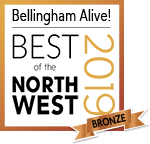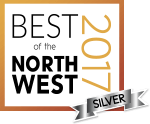Discomfort and pain in your jaw, clicking while you talk or chew, and swelling on the sides of your face can be caused by Temporomandibular Joint Disorder (TMD). TMD can make talking and eating both painful and uncomfortable. Our team understands how TMD can make your day a challenge. We’ve compiled a list of helpful tips for managing TMD discomfort, but also encourage you to schedule a visit to see us for a full evaluation.
Finding Relief at Home
If your jaw is swollen, try applying a cold compress to your face. We recommend holding the compress in place for about 10 minutes. If you are able, try a few gentle jaw stretches. After the cold compress, apply warm, moist heat to the same area. You can keep this warm compress in place for an additional 5 to 10 minutes.
If your discomfort is particularly noticeable, try over-the-counter pain relievers such as nonsteroidal anti-inflammatory drugs (NSAIDs) or ibuprofen. If you find yourself taking pain relieving medications daily, please contact us immediately.
The “Don’ts” of TMD
Applying excess pressure to your jaw can make your TMD discomfort worse. Don’t use your hand as a rest for your chin, as doing so increases the amount of pressure and strain placed on your jaw. If you talk on the phone frequently, avoid holding the phone on your shoulder while bending your neck to keep it in place.
Clenching your jaw and keeping your teeth tightly closed can also lead to a build-up of pressure in the jaw. During the day, try to keep your teeth from touching. By create a little space between your teeth, you will be relieving pressure from your jaw.
Contact Us
Our team is here to help you. Schedule a consultation with our dentist to learn more about the solutions available for people just like you dealing with TMD discomfort. We will provide a thorough examination to determine the best course of treatment for your TMD.
Relief may be closer than you think. Contact our dental team to learn more today.
Should You Brush Right After Eating? | Dentist Bellingham WA
Dentist in Bellingham, WA
Enamel is the guardian of your teeth and the hardest material in the body. It’s the first defense against harmful bacteria which may lead to tooth decay. When you eat certain foods, it creates bacteria which attack your tooth enamel. Carbohydrates and sugary foods are examples of these foods. Brushing directly after eating can be harmful to your enamel.
Why this is a problem
When eating or drinking, the pH balance in your mouth changes. After each bite of acidic food, the pH balance moves towards a level which causes demineralization. The new acidity softens the enamel which can cause bacteria to get into the teeth. Brushing right after you eat may damage your enamel. This is important because enamel protects your teeth from damage.
Steps you can take to protect your enamel:
• If you’ve had anything acidic, don’t brush for at least 30 minutes. Fruits with citric acid are one example. If you are planning ingesting acidic foods or drinks, you can brush beforehand.
• A glass of water will help remove the acid. Follow this by chewing sugarless gum. These steps help create saliva which will help bring back the necessary pH balance needed for a healthy smile.
• Try to avoid soda as prolonged phosphoric acid can cause permanent damage.
• Brushing your teeth twice a day is an important habit for optimal oral health.
Have you ever been told you should brush your teeth right after eating? While this may sound like the right habit to adapt, this practice could be detrimental to the health of your teeth. Rinsing your mouth with water after eating may be a better option to keep enamel strong. Visit our office for an exam and we can give you for tips for healthy, strong teeth. Call our office today.









